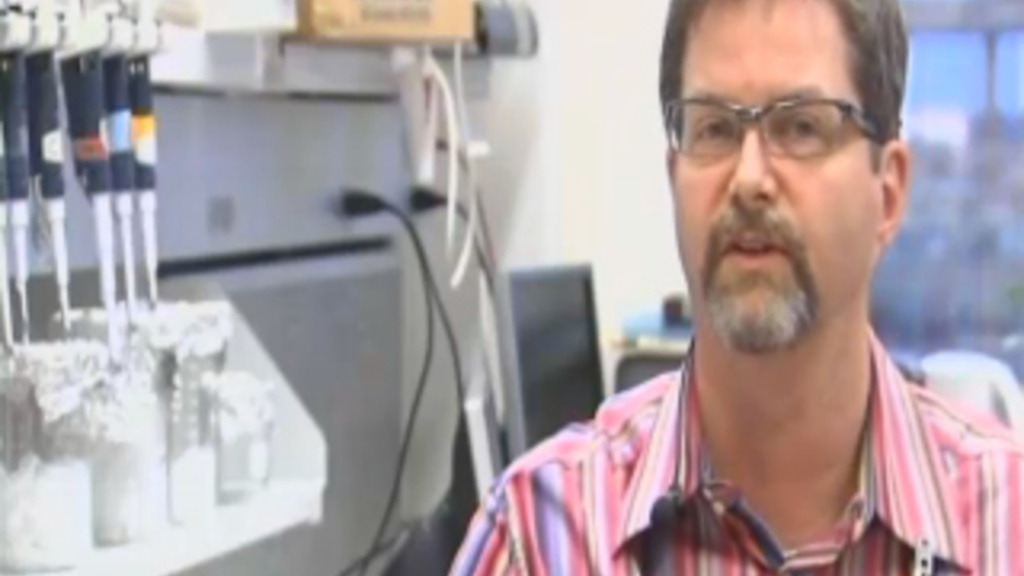Carver College of Medicine

UI infectious disease expert warns effective treatment lacking to fight superbug infections
Thursday, November 29, 2012
Eli Perencevich, a professor and infectious-disease doctor with UI Health Care, comments on infections caused by deadly antibiotic-resistant "superbugs." He says, "We are entering the post-antibiotic era; that's a very big problem."

AR12: Health care's expanding reach
Tuesday, November 27, 2012
Leaders, faculty, and staff with UI Health Care continually strive for innovation and growth in all of the missions on which the organization is built. Ensuring that the facilities and the infrastructure that support those missions continue to reflect that same commitment to growth and innovation is key to providing the best in education, research, and health care.
UI faculty, staff frequently make Ten to Watch list
Monday, November 26, 2012
The Iowa City Press-Citizen is currently seeking nominations for the 2013 Ten to Watch list. Many University of Iowa faculty and staff have appeared on past lists. (Note: A paid subscription may be required.)
Faulty development of immature brain cells causes hydrocephalus
Monday, November 19, 2012
University of Iowa scientists have discovered a new cause of neonatal hydrocephalus. The team discovered that cell-signaling defects disrupt immature brain cells involved in normal brain development. Treatment with lithium bypasses the defect in mice and reduces the hydrocephalus.
Andreasen receives scientific award for mental illness research
Friday, November 16, 2012
Nancy Andreasen, M.D., Ph.D., University of Iowa professor of psychiatry, who holds the Andrew H. Woods Chair of Psychiatry, has received the 2012 National Alliance of Mental Illness (NAMI) Scientific Research Award, honoring her contributions to the understanding of schizophrenia.

UI study says men less likely to be seen as depressed
Friday, November 16, 2012
A University of Iowa study says men are less likely to be seen as depressed—even when they are. James B. Potash, MD, study editor and UI professor of psychiatry, says there has been relatively little focus on education and depression in men.

Patients more likely to survive in-hospital cardiac arrest today
Thursday, November 15, 2012
A new study published Nov. 15 in the New England Journal of Medicine finds that patients who have a cardiac arrest in the hospital today are more likely to survive and to avoid neurological disability than they were 10 years ago.

Wassink discusses new findings about illness in pregnancy and autism
Wednesday, November 14, 2012
Thomas Wassink, UI professor of psychiatry and co-director of the UI Children's Hospital Autism Center, discusses new findings about illness in pregnancy and autism and explains progress being made in understanding the genetics of autism.
UI experts discuss advances for treating age-related macular degeneration
Wednesday, November 14, 2012
UI researchers and clinicians talk about advances for treating age-related macular degeneration.

Heart patient fights like a champ
Monday, November 12, 2012
Read how heart attack survivor Brad Smith of Coralville and many other patients enroll in CHAMPS (Cardiovascular Health, Assessment, Management, and Prevention Service) through the UI Heart and Vascular Center to improve their heart health and prevent future problems.
Seed grants awarded for cancer research
Monday, November 12, 2012
Leaders of Holden Comprehensive Cancer Center at the University of Iowa have named three researchers as recipients of the second round of the 2012 American Cancer Society seed grant awards.
UI team is runner up in international genetics challenge
Friday, November 9, 2012
A University of Iowa team of more than 30 researchers from five different colleges has been named a finalist and awarded $5,000 in a competition that challenged international research teams to provide the best interpretation and communication of DNA sequencing results for three children with rare, undiagnosed genetic diseases.
Pagination